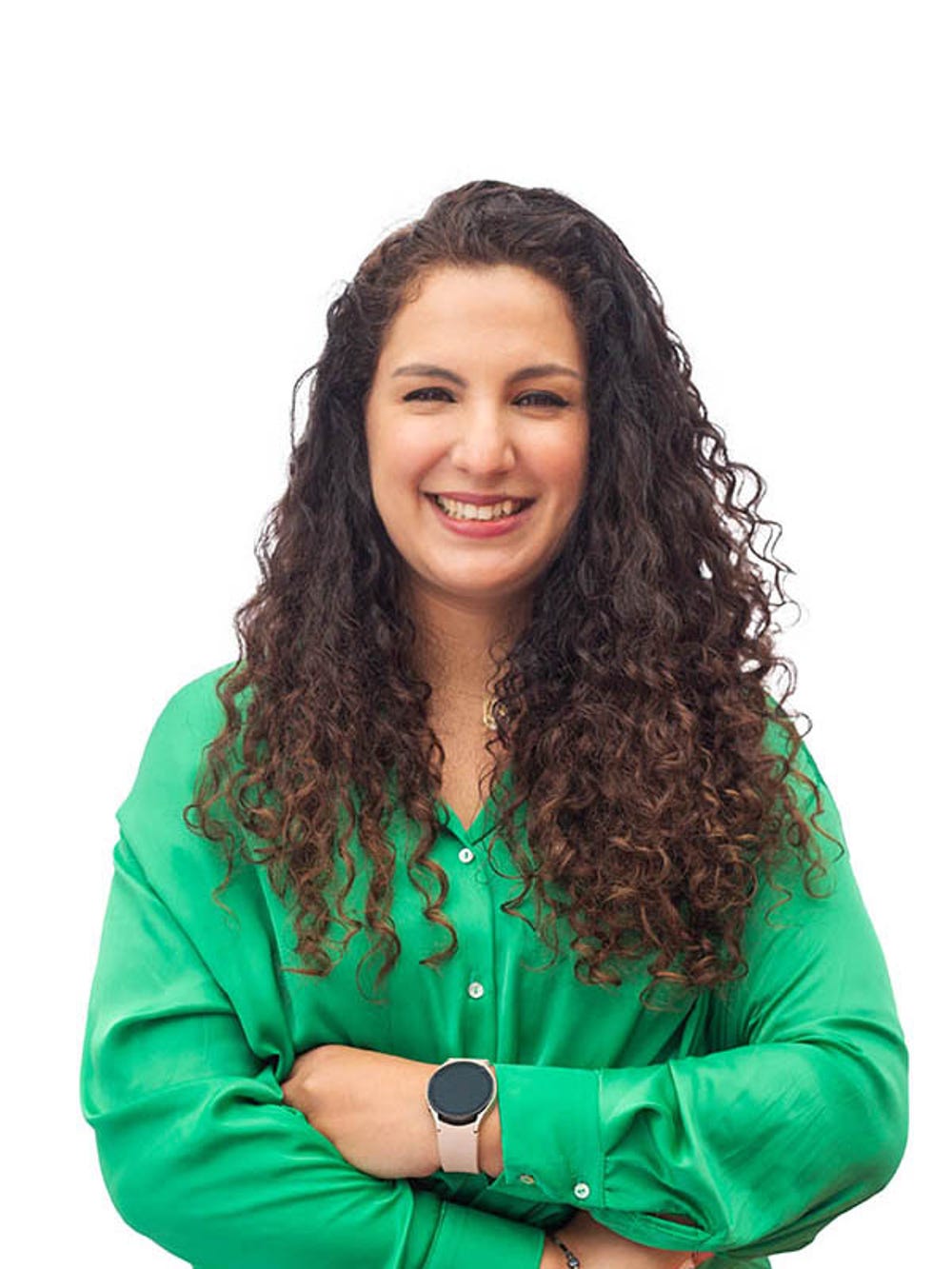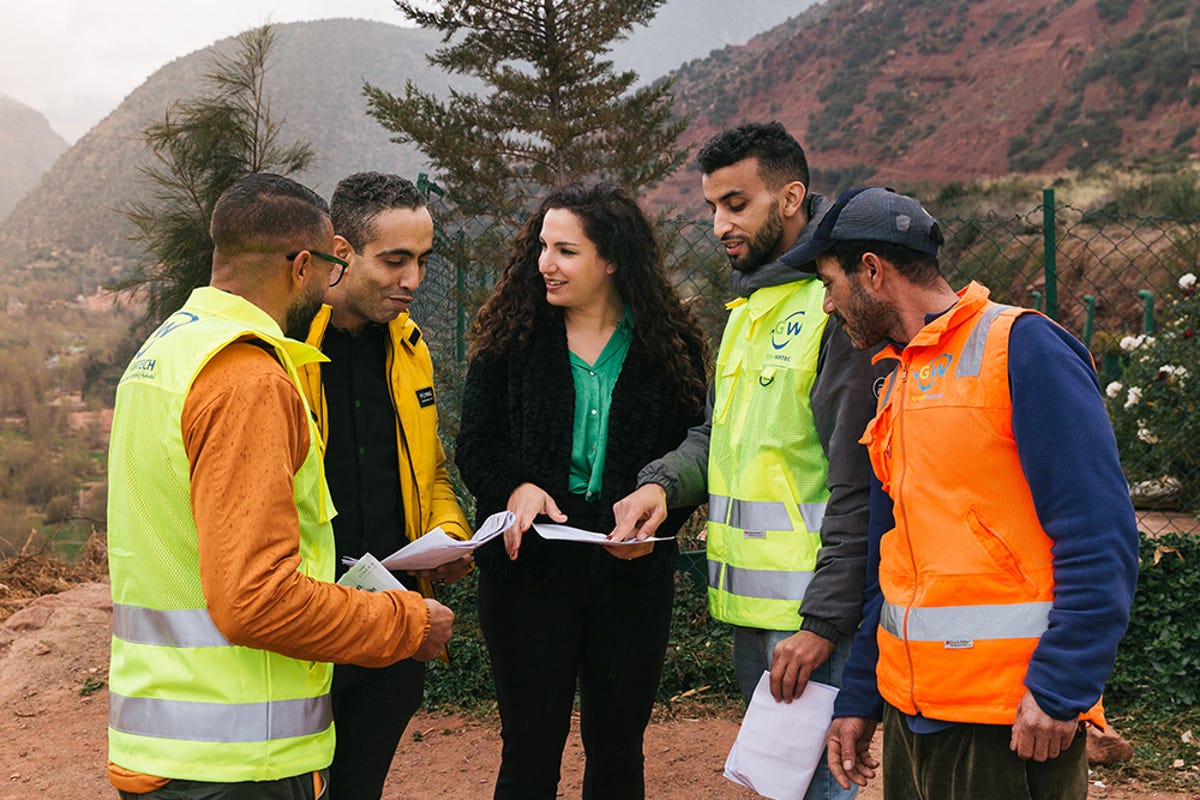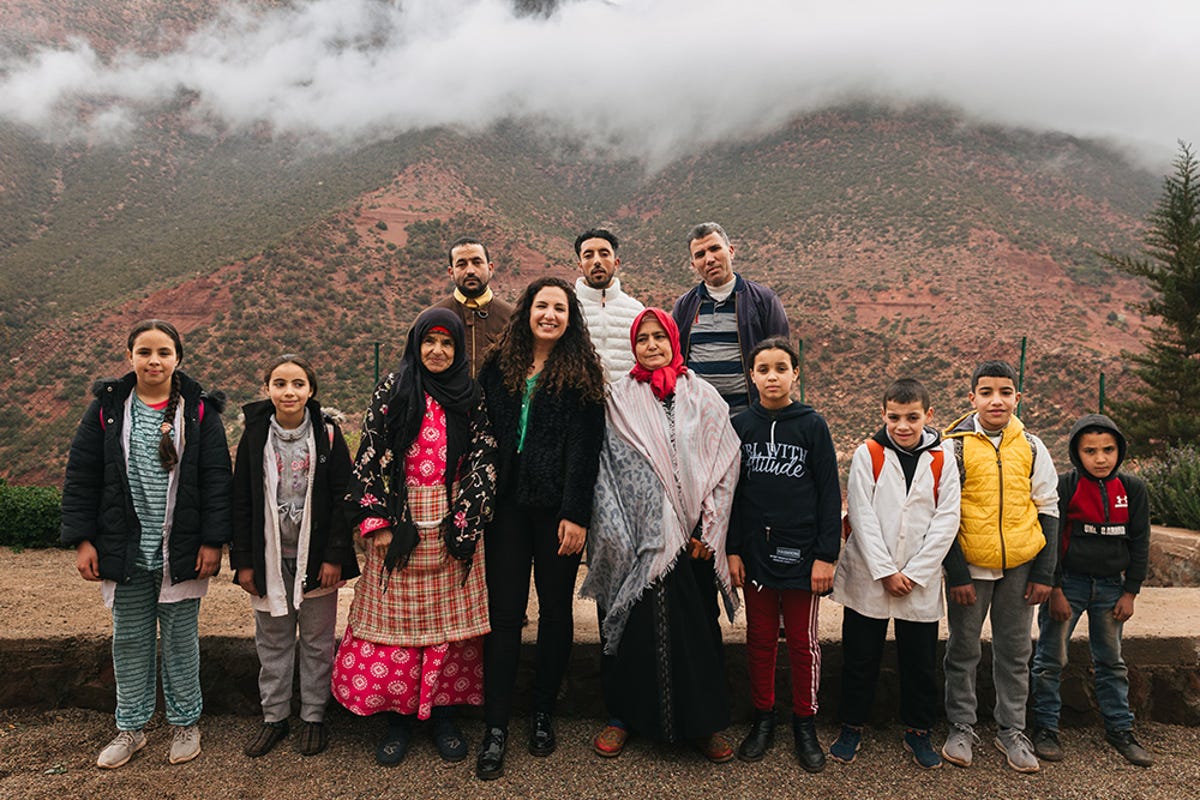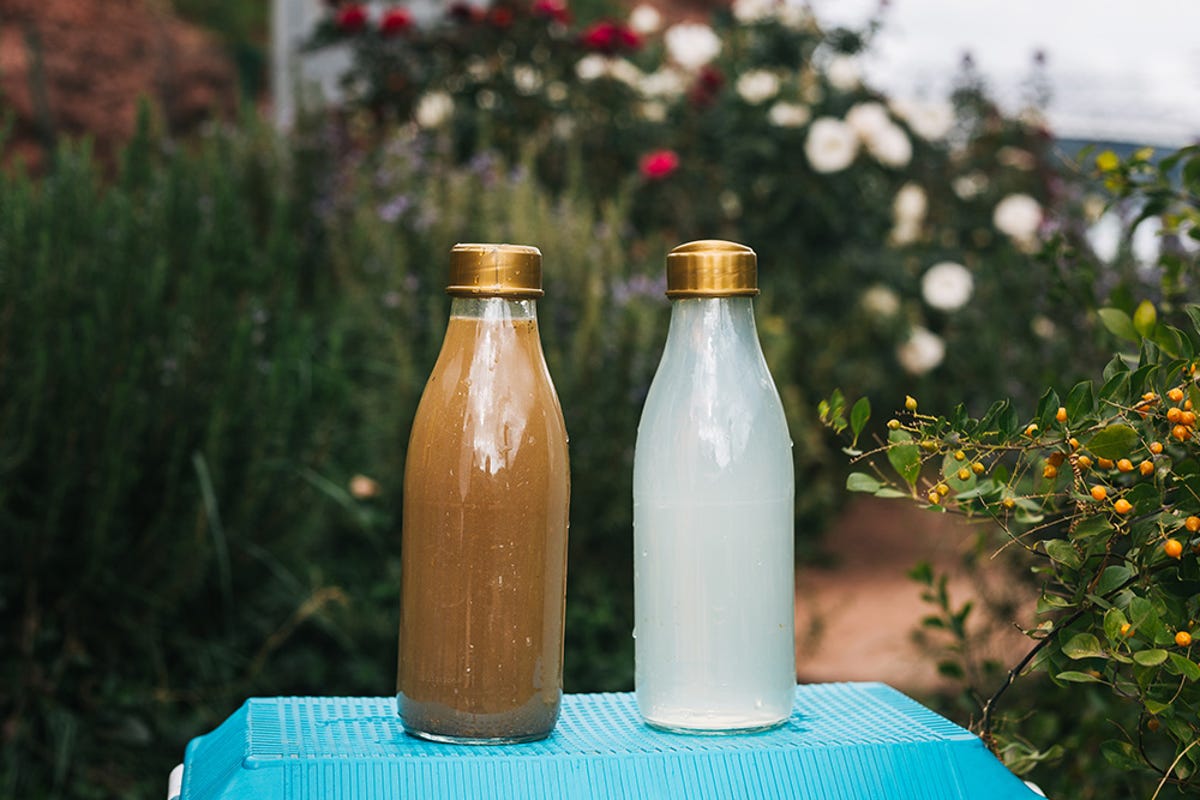Fellow Portrait
Salma Bougarrani
GREEN WATECH

GREEN WATECH offers an affordable and low-tech filtration system that treats wastewater without using energy.
Middle East and North Africa
Morocco
Fellow
2024
Updated March 2024
Lack of water and poor sanitation services endanger rural communities
According to the United Nations, more than 2.6 billion people around the world lack access to safe sanitation services. Every day, more than 800 children die from preventable diseases caused by contaminated water.
In Morocco, 14.6 million people live in rural areas spread across 32,000 villages without adequate sanitation services. Wastewater often ends up in water sources, harming public health and the environment. Meanwhile, water is in short supply for both human consumption and irrigation.
“Many people in these rural communities are experiencing extreme water stress where they only have water in their house for four hours a day,” says Salma Bougarrani, CEO of GREEN WATECH. “We need to mobilize unconventional resources to treat and reuse wastewater for irrigation, because agriculture is consuming 70 to 80 percent of the available water.”
It’s not easy to start from zero and work in rural areas as a woman in a civil engineering field that’s dominated by men. It was really challenging.

A low-tech filtration system treats wastewater for agricultural irrigation
For Salma, the issue of clean water is personal. She grew up spending holidays in the Moroccan village where her father was born and saw firsthand the harmful effects of wastewater discharged into local rivers. Inspired to solve the problem, she pursued a Ph.D. and worked extensively in the water treatment industry. After visiting a Japanese passive treatment plant that used natural processes to break down pollutants, she set out to adapt the technology for Morocco.
Launched in 2018, Salma’s company, GREEN WATECH (short for “Green Water Technology”), provides a soil-based filter system that treats domestic wastewater in rural communities. The water then becomes an irrigation source for agricultural production destined for human consumption—the highest quality level for treated water—thus reducing the amount of fresh water needed by up to 70 percent.
GREEN WATECH’S system requires two times less surface area than similar technologies, does not produce odor or noise, and doesn't rely on electricity.
“It’s a low-tech, passive solution,” explains Salma. “This is key, because these rural populations can’t afford high energy bills.”
The company’s system is also designed to be simple to operate and maintain, extending its useful life for up to twenty years. To increase buy-in from local communities, GREEN WATECH holds pre-installation informational and training sessions open to all residents.
“We work through a participatory approach. That's why our system works for so many years after implementation,” Salma says. “The rural population is really involved in the technology and they know how to maintain it.”
I wanted to develop a water treatment system adapted to the most vulnerable populations in North Africa. Our goal was a low-tech solution that this rural population can operate easily.

Villages have treated millions of liters of water
Since 2018, GREEN WATECH has brought safe sanitation services to more than 15,000 people in 17 villages and farms across Morocco. Rural communities have used the company’s technology to treat more than 200 million liters of water and reuse it in agricultural irrigation to produce more than 11,000 tons of food.
GREEN WATECH hopes to double the number of rural communities receiving safe sanitation services by 2025 and expand the use of its treatment systems to farms, resorts, campsites, educational facilities, and other locations throughout North Africa.
“It's hugely gratifying when people tell us this technology has changed their lives,” Salma says.
This technology also creates new job opportunities because people can irrigate their fields and sell the produce. It becomes a positive cycle.




